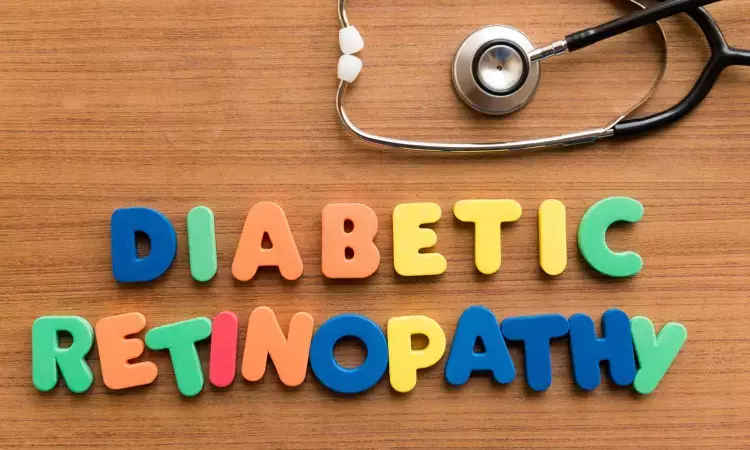- Home
- Medical news & Guidelines
- Anesthesiology
- Cardiology and CTVS
- Critical Care
- Dentistry
- Dermatology
- Diabetes and Endocrinology
- ENT
- Gastroenterology
- Medicine
- Nephrology
- Neurology
- Obstretics-Gynaecology
- Oncology
- Ophthalmology
- Orthopaedics
- Pediatrics-Neonatology
- Psychiatry
- Pulmonology
- Radiology
- Surgery
- Urology
- Laboratory Medicine
- Diet
- Nursing
- Paramedical
- Physiotherapy
- Health news
- Fact Check
- Bone Health Fact Check
- Brain Health Fact Check
- Cancer Related Fact Check
- Child Care Fact Check
- Dental and oral health fact check
- Diabetes and metabolic health fact check
- Diet and Nutrition Fact Check
- Eye and ENT Care Fact Check
- Fitness fact check
- Gut health fact check
- Heart health fact check
- Kidney health fact check
- Medical education fact check
- Men's health fact check
- Respiratory fact check
- Skin and hair care fact check
- Vaccine and Immunization fact check
- Women's health fact check
- AYUSH
- State News
- Andaman and Nicobar Islands
- Andhra Pradesh
- Arunachal Pradesh
- Assam
- Bihar
- Chandigarh
- Chattisgarh
- Dadra and Nagar Haveli
- Daman and Diu
- Delhi
- Goa
- Gujarat
- Haryana
- Himachal Pradesh
- Jammu & Kashmir
- Jharkhand
- Karnataka
- Kerala
- Ladakh
- Lakshadweep
- Madhya Pradesh
- Maharashtra
- Manipur
- Meghalaya
- Mizoram
- Nagaland
- Odisha
- Puducherry
- Punjab
- Rajasthan
- Sikkim
- Tamil Nadu
- Telangana
- Tripura
- Uttar Pradesh
- Uttrakhand
- West Bengal
- Medical Education
- Industry
Screening after dilatation in primary care setting may increase screening rates among low-income diabetic retinopathy patients: Study

One-third of diabetic adults in the U.S. do not receive annual eye exams. Additionally, lack of pupillary dilation before exams is associated with ungradable, or insufficient exams. In September 2022, the OhioHealth Grant Medical Center Family Medicine practice implemented on-site diabetic retinopathy screening using digital fundus photography and automated retinal imaging without dilation. The practice later introduced eye dilation for specific patients.
In order to increase the proportion of primary care diabetic patient panel who received diabetic eye exams, the researchers initially utilized digital fundus photography and automated retinal imaging analysis without performing dilation. Later, because of the high proportion of exams that the software could not interpret, they began offering eye dilation before fundoscopic examination.
By identifying patients needing screening before appointments and using electronic health record reminders, the clinic increased the rate of interpretable exams from 20% in November 2022 to 35% in May 2023. That same month, the clinic began offering eye dilation to patients over 64 years of age and those who failed non-dilated exams. This change reduced the insufficient exam rate from 36% to 22% over the following eight months. The clinic’s retinopathy detection rate increased from 11% to 18% between September 2022 and January 2024. By January 2024, the screening rate was 57% for patients not seen in a year and 65% for those seen within the year.
The greatest increase in retinopathy screening came after clinic managers started tracking patients who needed screening prior to their appointments, and reminding staff through the electronic health record to perform screening. Offering dilated eye exams further reduced the rate of insufficient exams. Overall, the strategy of using in-clinic retinal photographs with software interpretation and selective eye dilation effectively increased screening rates for our patients from socially disadvantaged populations.
Reference:
Jonathan Yun, Spencer Schell, Kevin Gulley and Michael E. Johansen, Dilation Before Automated Diabetic Retinopathy Screening Performed in the Primary Care Setting,The Annals of Family Medicine July 2024, 22 (4) 356; DOI: https://doi.org/10.1370/afm.3133
Dr Kamal Kant Kohli-MBBS, DTCD- a chest specialist with more than 30 years of practice and a flair for writing clinical articles, Dr Kamal Kant Kohli joined Medical Dialogues as a Chief Editor of Medical News. Besides writing articles, as an editor, he proofreads and verifies all the medical content published on Medical Dialogues including those coming from journals, studies,medical conferences,guidelines etc. Email: drkohli@medicaldialogues.in. Contact no. 011-43720751


